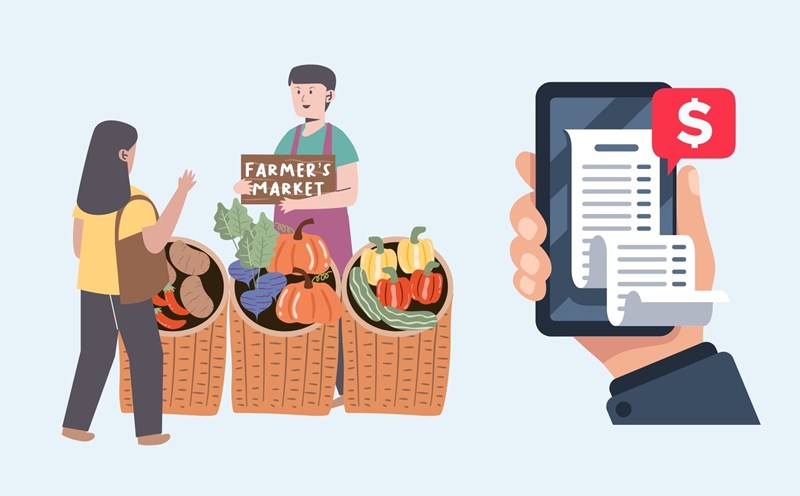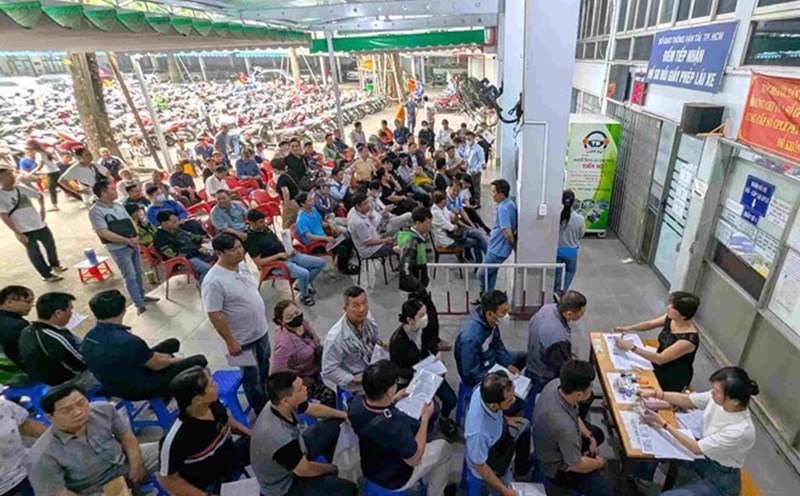Converting from contract tax to declaration, ensuring tax fairness
Currently, business households and individuals are paying taxes according to the declaration method, contract method or according to each arising period. The contract method is a method of calculating tax based on the ratio on contract revenue determined by the tax authority to calculate the contract tax rate according to the provisions of Article 51 of the Law on Tax Administration.
This method is applied to business households and individuals who are not subject to tax payment according to the declaration method and are not subject to tax payment at each occurrence. In case the contract household uses invoices issued by tax authorities and retails in each number, the contract household declares and pays separate taxes on the revenue arising on that invoice in each arising period.
The declaration method is the tax declaration method, calculating tax based on the actual revenue generated monthly or quarterly.
In the context of the current developing economy, when the tax management method is being implemented according to the self-declaration and payment mechanism, the contract tax policy has revealed many limitations such as unfairness, easily loss of revenue from the State budget, failure to promote transparency and no longer suitable in the context of the digital economy, the trend of converting to a methodical business model. The conversion of tax payment under the contract method to the practical declaration method is a necessary step to improve management efficiency and create equality in tax obligations between business households and enterprises.
Faced with the above reality, the Government has issued Decree No. 70/2025/ND-CP amending and supplementing Decree No. 123/2020/ND-CP regulating invoices and documents with the regulation that business households paying taxes under the contract method with a revenue of 01 billion VND/year or more must use electronic invoices with a money connection from 01/6/2025.
Business households pay taxes according to the declaration method - long-term benefits
The shift from the contract method to declaration is an inevitable step for business households to develop more sustainably, access credit, supply chains, and legitimate business opportunities.

First, improve transparency and professionalism. The shift to paying taxes according to the declaration method helps business households operate more transparently and professionally. Businesses will make monthly or quarterly tax declarations based on clear accounting books, invoices and documents. This helps record revenue and expenses accurately, in compliance with the provisions of the law on accounting and tax. At the same time, using electronic invoices when switching to the declaration method also brings many benefits, such as helping to increase customer reputation in the modern business environment, contributing to limiting risks related to legality as well as tax management.
Second, limit the risk of tax payment. HKD is proactive in paying taxes when it can proactively self-declare and self-determin the amount of tax payable without being affected by the previous year's revenue and the contract level determined by the tax authority. If during the year, HKD encounters difficulties due to market reasons, it will be declared according to the actual situation without being subject to tax as before.
Third, full declaration of books helps businesses easily prove revenue, expenses and profits clearly to banks or partners. Thanks to that, the process of borrowing capital or mobilizing additional investment resources becomes more favorable. At the same time, compliance with accounting requirements also creates favorable conditions for branch expansion or searching for and cooperating with new business partners.
Fourth, help promote business households to change their models. The shift to the method of declaring revenue, using invoices, managing cash flow through accounts... is also a form of creating positive pressure for business households to improve their management capacity, professionalize operations, and move towards converting into legitimate enterprises. From there, they can access capital, participate in large supply chains, and develop more sustainably.
Fifth, creating a foundation for private economic policy making based on real data. When switching to the tax calculation mechanism based on actual revenue declaration and electronic invoices, the new management agency can clearly see a comprehensive, accurate and transparent picture of the business activities of this area. From there, the State will have enough basis to build support policies and develop the private economy in a practical way, instead of relying only on estimates, sentiment or modeling lacking input data.











